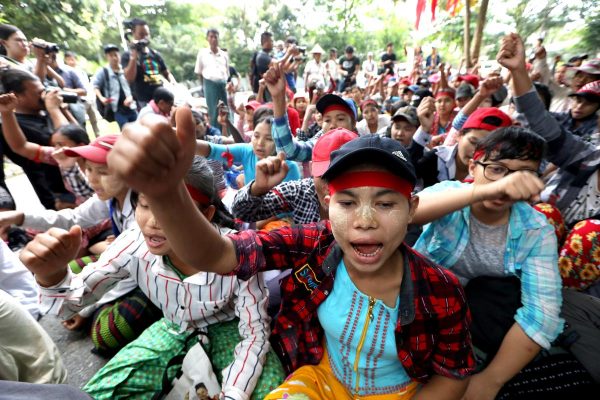Garment workers marched to Yangon City Hall on Tuesday in the latest episode of the labor rights saga within Myanmar’s garment industry.
The workers from three foreign-owned factories took to the streets after the sacking of workers union leaders, reported the Myanmar Times. The protesters demanded protections from their employers, as well as stricter enforcement of labor rights laws. Protesters also called for higher wages in anticipation of a meeting of the National Committee for Minimum Wage. Their demands have been common themes during a year of strikes and protests in Myanmar’s garment industry, especially in Pathein, the capital of Ayeyarwady Region, and Hlaingthayar, an industrial suburb of Yangon. Workers have claimed their bosses unlawfully force them to work long hours in poor conditions, illegally terminating those who speak out.
The garment industry is Myanmar’s largest manufacturing sector and therefore a frequent flashpoint for labor rights disputes. Garment workers led the fight for Myanmar’s minimum wage, which was introduced in 2015 and now stands at MMK 4800 per day. Likewise, garment industry leaders led the fight against it, claiming that higher wages would force them to cut back on housing, overtime and other benefits for workers, as well as drive away foreign investment. Their predictions proved incorrect: Myanmar’s garment industry only grew since the minimum wage was passed, and continues to grow despite the recent unrest. The Myanmar Garment Entrepreneurs Association recently estimated that garment exports will increase to USD 10 billion by 2024.


